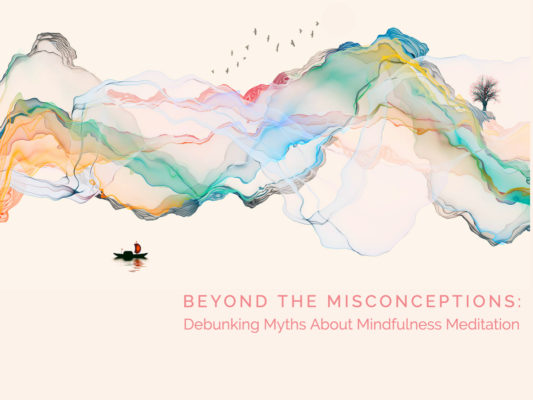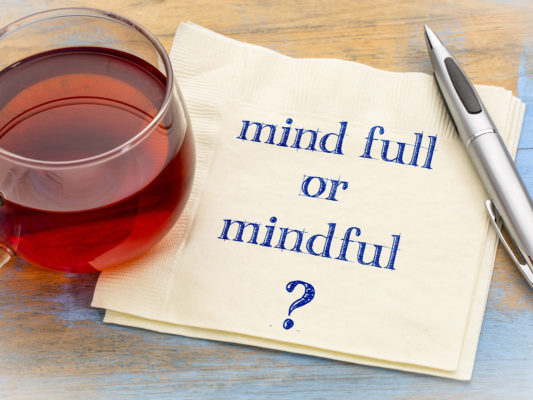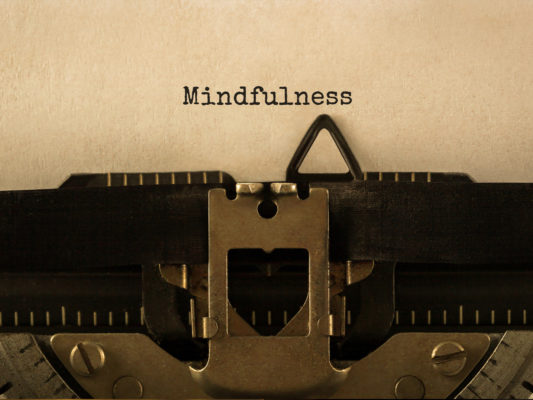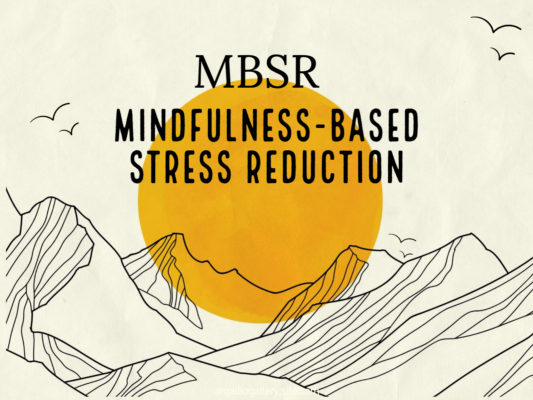Mindfulness and therapeutic mindfulness are topics that have gained much attention in recent years, and for good reason. Not only has research shown that mindfulness can be an effective tool in treating various mental health conditions, but it has also been shown to have numerous benefits for overall well-being and happiness.
Mindfulness and Therapeutic Mindfulness: What are they?
Have you heard about mindfulness and therapeutic mindfulness? These topics have been making a lot of noise lately, and for a good reason. Not only does research show that mindfulness can be effective in treating various mental health conditions, but it can also bring a whole bunch of benefits for our overall happiness and well-being.
What is Mindfulness?
So, what exactly is mindfulness? It’s all about being present in the moment and experiencing things as they are, rather than how we think they should be. This could mean focusing on our thoughts, feelings, emotions or simply observing the world around us. With time and practice, mindfulness can train our mind to be less reactive, more focused and resilient.
What is Therapeutic Mindfulness?
Now, therapeutic mindfulness takes these concepts and applies them specifically to mental health treatment. It involves practices like mindfulness meditation, body scan exercises, and mindful breathing. You need a certified professional who guides you through these exercises, helping you develop your mindfulness skills and integrating them into your daily life.

The Benefits of Therapeutic Mindfulness
Awareness: One of the key benefits of therapeutic mindfulness is that it helps us become more aware of our thoughts, feelings, and emotions. This is especially helpful for those struggling with depression, anxiety, or trauma. By learning to be mindful, we can understand the root causes of our distress and develop effective coping mechanisms.
Compassion and Acceptance: Therapeutic mindfulness also promotes compassion, kindness and acceptance. By embracing our experiences, positive or negative, we create a more resilient and compassionate relationship with ourselves and the world. This leads to a greater sense of peace, happiness, and overall well-being.
Mindful and Compassionate Relationship with Yourself: It’s important to remember that mindfulness is not just about being kind to others, but also to ourselves. Self-compassion and self-acceptance are crucial in making sense of our world, especially during tough times. By allowing ourselves to be emotionally aware and self-accepting, we can cultivate a more positive and mindful relationship with ourselves.
Now, it’s important to keep in mind that mindfulness and therapeutic mindfulness are not a one-size-fits-all solution, but if you’re interested, therapeutic mindfulness could be a great starting point.
In a nutshell, mindfulness and therapeutic mindfulness can be powerful tools for improving our mental health and overall well-being. By incorporating mindfulness into our daily lives, we can become more aware, more compassionate and more resilient to face life’s challenges.

Incorporating Mindfulness into Daily Life
Mindfulness has been around for centuries, originating from the word ‘sati’, which means awareness, attention, and remembering. But in recent years, it’s been gaining popularity as a way to incorporate a more mindful lifestyle into our daily lives and even as a way to alleviate clinical conditions.
One of the most well-known experts in mindfulness, Jon Kabat-Zinn, defines it as ‘the awareness that emerges through paying attention on purpose, in the present moment, and non-judgmentally to the unfolding of experience moment to moment.‘
And that’s what therapeutic mindfulness is all about – being present and aware of our experiences, but with a touch of acceptance and compassion. It’s a gentle way to deal with our emotions and feelings, instead of simply pushing them away.
In fact, if someone is struggling with a traumatic experience, incorporating mindfulness and acceptance into their therapy can greatly increase their chances of overcoming their suffering. But it’s important to remember that mindfulness is not just about being kind to others, but also to ourselves. This self-compassion and self-acceptance is crucial in making sense of our world, especially during tough times.
The Key to Unlocking the Potential of Therapeutic Mindfulness
If you’re considering seeking therapeutic mindfulness, it’s probably because you’re looking for a way to deal with the challenges in your life and for someone who understands what you’re going through. So let’s embrace kindness, compassion, and awareness for better understanding and support. I believe that by fostering these qualities, we can work together to help in finding peace and happiness.
Practicing mindfulness and self-compassion is important because by allowing yourself to be emotionally aware and self-accepting, you’ll cultivate a more positive and mindful relationship with yourself. So, whether you’re practicing mindfulness on your own or in a therapeutic setting, always be kind, compassionate, and accepting towards yourself and others. That’s the key to unlocking the full potential of therapeutic mindfulness and finding the peace and happiness you deserve.
Be Alive 🌱
Love ❤️, Julia
PS: Mindfulness and therapeutic mindfulness have been making waves in the world of mental health, and it’s not without good reason. The numbers speak for themselves, showing the effectiveness of mindfulness in improving mental and physical well-being:
- According to a recent survey by the National Center for Complementary and Integrative Health, more than 14% of American adults have used mindfulness meditation to improve their mental and physical health.
- A review of 47 clinical trials found that mindfulness-based therapies were effective in reducing symptoms of depression in adult patients.
- In a study of veterans with PTSD, researchers found that participating in mindfulness-based stress reduction (MBSR) led to significant improvements in symptoms, including anxiety and sleep disturbances.
- Another study showed that practicing mindfulness for just 10-15 minutes a day for 8 weeks led to improved focus, attention, and overall well-being in a group of college students.
- And in a meta-analysis of 39 studies, researchers found that mindfulness-based interventions were effective in reducing symptoms of anxiety and depression in a diverse range of populations, including cancer patients, teachers, and employees.

These statistics just scratch the surface of the growing body of evidence that supports the benefits of mindfulness and therapeutic mindfulness. If you’re interested in learning more, there are countless resources available, including books, articles, and videos on the subject.
Beyond the Misconceptions: Debunking Myths About Mindfulness Meditation
Beyond the Misconceptions Despite common misconceptions, Mindfulness and Meditation is a valuable tool for enhancing [...]
Mindfulness vs. Mind Fullness
Mindful vs Mind Full: What’s the Difference? We all want to live a blissful life, [...]
What is Mindfulness? A Frank Conversation
The Seed of Mindfulness Imagine yourself as a skilled gardener, nurturing a small seed nestled [...]
How Mindfulness-Based Stress Reduction (MBSR) Started
The Birth of Mindfulness-Based Stress Reduction (MBSR) Meet Jon Kabat-Zinn, a young and brilliant molecular [...]
GUIDED MEDITATIONS 💗
DISCLAIMER: The materials and the information contained on the Positive Pranic website are provided for general and educational purposes only and do not constitute any legal, medical, or other professional advice on any subject matter. None of the information on our videos is a substitute for a diagnosis and treatment by your health professional. Always seek the advice of your physician or other qualified health providers prior to starting any new diet or treatment and with any questions you may have regarding a medical condition. If you have or suspect that you have a medical problem, promptly contact your health care provider.






















